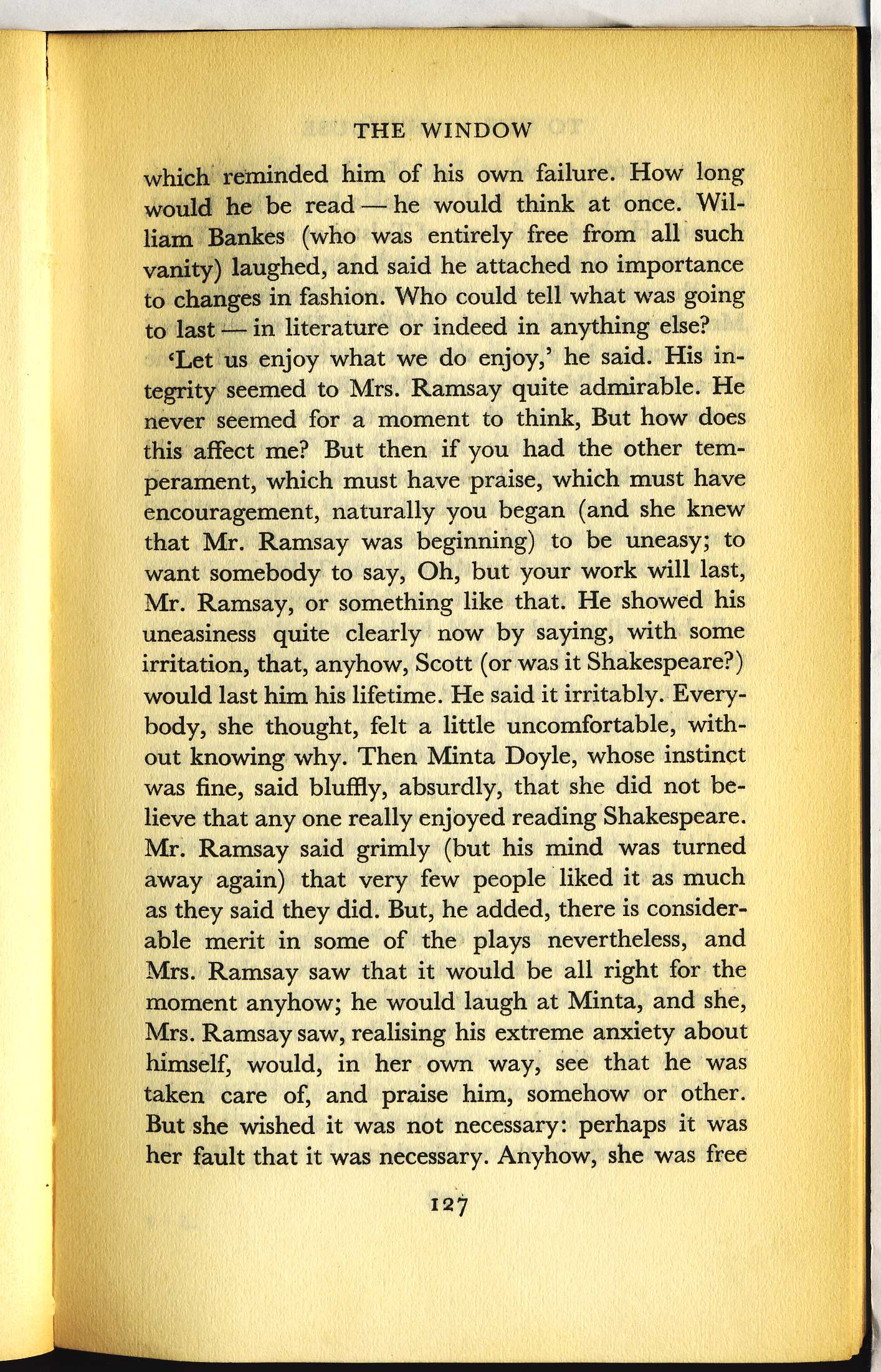
THE WINDOWwhich reminded him of his own failure. How longwould he be read — he would think at once. Wil-liam Bankes (who was entirely free from all suchvanity) laughed, and said he attached no importanceto changes in fashion. Who could tell what was goingto last — in literature or indeed in anything else?'Let us enjoy what we do enjoy,' he said. His in-tegrity seemed to Mrs. Ramsay quite admirable. Henever seemed for a moment to think, But how doesthis affect me? But then if you had the other tem-perament, which must have praise, which must haveencouragement, naturally you began (and she knewthat Mr. Ramsay was beginning) to be uneasy; towant somebody to say, Oh, but your work will last,Mr. Ramsay, or something like that. He showed hisuneasiness quite clearly now by saying, with someirritation, that, anyhow, Scott (or was it Shakespeare?)would last him his lifetime. He said it irritably. Every-body, she thought, felt a little uncomfortable, with-out knowing why. Then Minta Doyle, whose instinctwas fine, said bluffly, absurdly, that she did not be-lieve that any one really enjoyed reading Shakespeare.Mr. Ramsay said grimly (but his mind was turnedaway again) that very few people liked it as muchas they said they did. But, he added, there is consider-able merit in some of the plays nevertheless, andMrs. Ramsay saw that it would be all right for themoment anyhow; he would laugh at Minta, and she,Mrs. Ramsay saw, realising his extreme anxiety abouthimself, would, in her own way, see that he wastaken care of, and praise him, somehow or other.But she wished it was not necessary: perhaps it washer fault that it was necessary. Anyhow, she was free127









